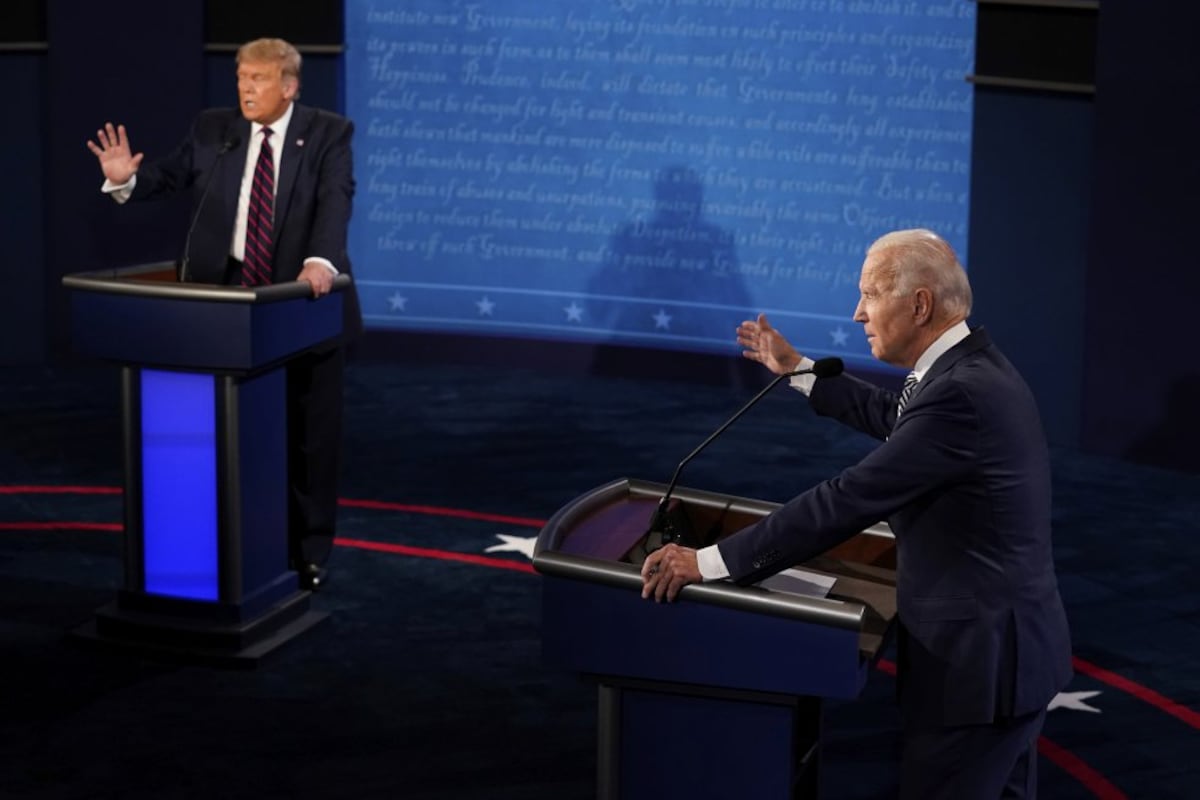Before the 2020 U.S. presidential election, more than 35,000 Facebook and Instagram users agreed to participate in an experiment. Twenty-seven percent of that randomly chosen group were paid to deactivate their accounts for six weeks. The rest only disconnected for a week. The objective was to analyze what happens when users disconnect from the two of the biggest social media networks in the most heated weeks of the U.S. political calendar.
The result is that hardly anything at all happens. Except for one detail: the group that disconnected from Facebook (not Instagram) tended to not believe the misinformation that was circulating online. On the other hand, their political participation, especially online, also decreased.
The new article, published on Monday in the journal PNAS, is the work of more than 30 academics from U.S. universities and Meta researchers. It is part of the macro study, which began to be published last summer in the magazines Science and Nature. This research found that conservatives consume more misinformation on Facebook, among other results. The project is the result of an August 2020 agreement between Meta and two professors, who then selected the rest of the researchers.
One of the authors of the article, Stanford University professor Matthew Gentzkow, says there are two main findings from the PNAS study: “First, stopping using Facebook and Instagram in the final stretch of the election had little or no effect on political opinions, their negative opinions about opposing parties, or beliefs about complaints of electoral fraud. Second, stopping using Facebook does affect people’s knowledge and beliefs. Those who went off Facebook responded worse to news tests, but they were also less likely to believe widespread misinformation, suggesting that the platform may be an important channel for both true and fake news,” he says.
Although the result is not completely clear, for Gentzkow, the finding is quite surprising: “Previous research has shown that exposure to misinformation is often quite low for most people, so I was really surprised to see this effect, which was large enough to be marginally detectable,” he says.
Unprecedented macro study
Aside from being part of an unprecedented macro study using internal Meta data, the work is also the largest ever done on social media deactivation. The sample is 10 times larger than any previous experiment, according to the article. The authors, however, admit that the work has its limitations when it comes to measuring the real impact of a network like Facebook in democracies.
“This study has the same problem as the previous ones,” says David García, a professor at the University of Konstanz in Germany, who commented on the summer 2023 articles in Nature. “It is only able to experiment with individuals who are within a society where many other people continue to use Facebook and Instagram normally. When we talk about the Facebook effect, we think about what society would be like without Facebook compared to what it is like with Facebook, not what the people who do not use the network are like compared to those who do use it,” García explains.
Gentzkow admits that investigating that issue is beyond the reach of academia: “It is not possible to do an experiment now to directly answer the question of what polarization would have been like if Facebook had never existed.”
But the experiment, at least, did clear up doubts about whether Instagram was in the same league as Facebook: the article did not find any kind of effect on the influencer-centric network. “Aside from a reduction in online participation, we find no significant impacts of Instagram deactivation on any other primary outcomes,” the article says. “This is true even among younger users, and it suggests that despite Instagram’s rapid growth, Facebook likely remains the platform with the largest impacts on political outcomes.”
The study also found that users who went off Facebook for six weeks were more wary of the political information they saw on Facebook, a shift that also occurred on Instagram: “One potential explanation is that time away from a platform made users more aware of the amount of low-quality or inaccurate information to which they had been exposed,” the study explains.
While the study found that political participation (especially online) fell among the group that disconnected from Facebook, voter intention remained the same. In other words, less participation online did not lead to fewer voters at the polls.
Nor did Instagram and Facebook deactivation have an effect on polarization, perceived legitimacy of the elections or candidate preference. Another question that the researchers wanted to answer was how important Facebook was to Donald Trump. The study did not find definitive data that suggested the platform helped the former U.S. president. Although the results are “statistically insignificant,” they do suggest that deactivation had an effect on who participants voted for. “Deactivation decreased Trump favorability, decreased turnout among Republicans and increased turnout among Democrats,” the article states.
Researcher David García believes that the work could have been clearer on this point: “The result regarding Trump favorability is very interesting. It does not reach the level pre-specified by the scientists, but because the standard of evidence they had is very high. If they had assumed that Facebook deactivation lowers the vote for Trump, it would have passed the test. I see more important evidence than what appears in the text. The effect was small for the amount of data they had, but it doesn’t seem so small to me when you think about how close elections in the U.S. tend to be,” he explains.
Facebook invited 10.6 million users to take part in the study and 637,388 clicked the invitation. Of this figure, only 19,857 people completed the experiment, which also involved a series of surveys. Participants who deactivated their account for six weeks were paid $150. On Instagram, Meta invited 2.6 million users and achieved 15,585 participants.
Sign up for our weekly newsletter to get more English-language news coverage from EL PAÍS USA Edition

